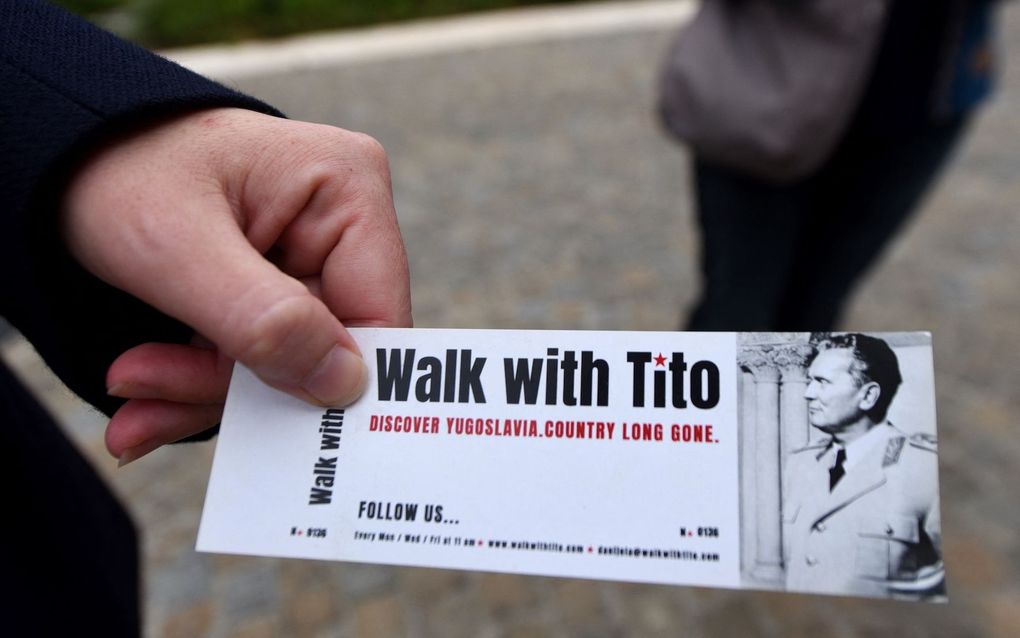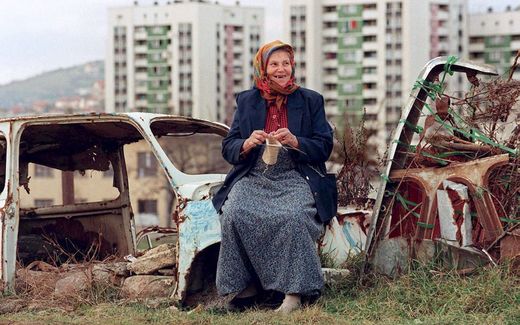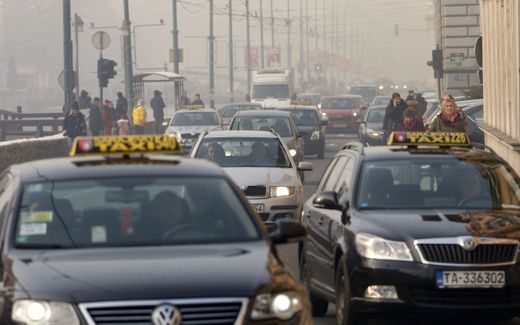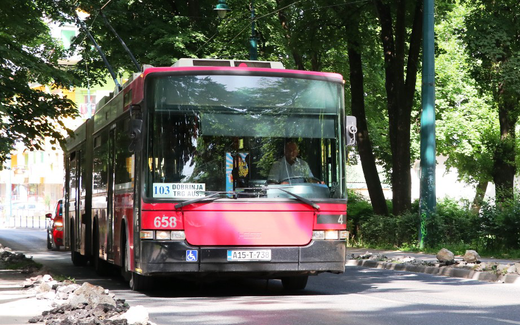Column from Sarajevo: My country is no more than a holiday destination
11-08-2023
Christian Life
Mirela Popaja-Hadžić, CNE.news

Tourism is growing in the Balkans. Part of it comes from people who have left the region and come back for holidays. Photo AFP, Denis Lovrovic
Christian Life
This summer, my family and I took a vacation to the beautiful coast of Croatia. There, we met our friends who were originally from Bosnia and Herzegovina (BiH) but now live in the USA. What caught my attention was how everyone introduced themselves.
We met some lovely people. And they all introduced themselves the same way: “Hi, this is so-and-so; she used to live in Sarajevo but moved to Germany 15 years ago. And this is her cousin so-and-so; she lives in the USA but is originally from Croatia.” There were numerous occasions like this, with people introducing themselves or being introduced to others, never forgetting to inform everyone of where they came from originally.
Why is this significant? Before the unfortunate events in the 90s, many people owned a vacation home. The location was usually in the country, in the mountains or on the coast. Being able to have this getaway home, together with a significant time off, was one of many reasons why President Tito was popular. During the war, many people were forced to leave their homes and find safety in Western Europe.
Back to home
Nowadays, during the summer, the countries of the former Yugoslavia become one big vacation destination for all the people who used to live in the region. The highways become overburdened with rivers of “domestic migrants” coming from Western Europe to visit their family and friends and get a good selfie of a local food joint with the hashtag “no place like home.”

It is no secret that the population of BiH and other countries of former Yugoslavia is becoming increasingly smaller due to the search for better living and working conditions in the “Promised Land” of Germany, Austria, Ireland, etc. In one study, researchers say that BiH loses an entire city of people annually. Every other young person in the Balkans is at least thinking of leaving their country of birth by the time they finish high school, blaming the hopelessly crumbling political system, lack of good job opportunities, inept health care, and just overall gloom that prevents anyone from truly thriving. “Here, you can only survive, but you cannot live” is a sentence I hear often.
Roasting a pig
This current exodus is a problem on multiple levels, both for those leaving and for us who stay. People who go are constantly battling inward confusion about their own identity. They are seen as foreigners and are never fully accepted back home or in their new country of residence.
Their family and friends “left behind” constantly accuse them of not contributing enough financially to their long line of parents, siblings, cousins, and cousins of cousins. The pressure to visit every year, to take out a loan to appear successful, the mixing of foreign words with a local language, and having children that do not understand Grandma because they do not speak the local language anymore, is just too much for them.
Of course, the human ego makes sure to have its moment in the spotlight as well, making sure to rub it in everyone’s face how the one who left “made it,” implying that those who stayed did not. On the other hand, their new Western neighbours cannot understand why anybody would roast a lamb or a pig on a stick in their front yard. (If you would like a visual of this dynamic, I highly recommend a movie called My Big Fat Greek Wedding. It perfectly depicts Balkan culture abroad, and it will also give you a good laugh.)
Put down the mask
For those who stay behind, the lingering agony of “Should I stay or should I go” is ever-present. They constantly wrestle with this feeling of missing out on a “normal” life where you get to visit cultural events, movies and museums that do not talk about the war, where you can depend on a good healthcare system, where you will not be threatened by politicians about another ethnic conflict, where you get to breathe unpolluted air in the winter.

The constant feeling that you’re a loser because you don’t have a great car or house and you can’t put a little golden asterisk after your name as “someone that used to live here but now lives in Germany.” I can only imagine how hard it is to live in limbo between cultures, not having a clear picture of who you are or where you belong.
To be a square-shaped peg trying to fit into a triangle-shaped hole; in some ways, knowing that you will be a foreigner for the rest of your life. But I know all too well how it feels to be the one who stayed behind, the struggle of having to answer the daily question of leaving or staying.
As a psychotherapist, I find these life circumstances painful. And I want to do something about it. “Survival mode” is no way to spend time on this Earth. Our story does not have to be this grey. How about, instead of surviving, we find a way to deal with our pain? What if we create a safe space where there will be no judgment to process our emotional struggles? To put down the masks of pretends and see what is under the surface?
I am aware that the process is long, painful and hard. But I also know that the only way out is through. My hope is that we can all take this step towards a healthier life.
Mirela Popaja-Hadžić
Born in Sarajevo in the 1980’s. Like many others of her generation, Mirela had a front row seat to the breakup of Yugoslavia and the siege of Sarajevo.

In her twenties, Mirela realised that the war impacted her more than she had previously acknowledged. This realisation launched her into an introspective journey to grapple with and heal from her own trauma.
It also catalysed a process of theological and philosophical reflection about how to lament and embrace the hardships of life. Her own unaddressed grief and trauma surfaced. Through a therapeutic process of breathing and lament, she came to understand the importance of grief as part of the process of healing and reconciliation.
This individual healing process clarified her sense of personal calling and mission: to work for individual and collective healing through mental health and peacebuilding work. She has over 10 years of experience working in both the profit and non-profit sector in project coordination, program management, training, facilitation, and translation.
She is currently specialising in a field of Psychotherapy called Gestalt to become a trauma therapist to more effectively address the unengaged trauma manifesting in Bosnia and Herzegovina (BiH) society as depression, anxiety, and addictions. She is also an affiliate trainer with Trauma Free World and holds a Bachelor of Science in philosophy from the University of Sarajevo.
For three years, she worked as the program manager and BiH director for a US-based foundation empowering a new generation of leaders in BiH through scholarships, leadership development, and learning experiences.
Mirela thrives and has extensive experience working between cultural, religious, and ethnic groups, translating linguistically and culturally, and working with youth and young adults to build understanding and capacity for personal and communal thriving.
She lives in Sarajevo, with her husband, their daughter and two cats.
Related Articles





